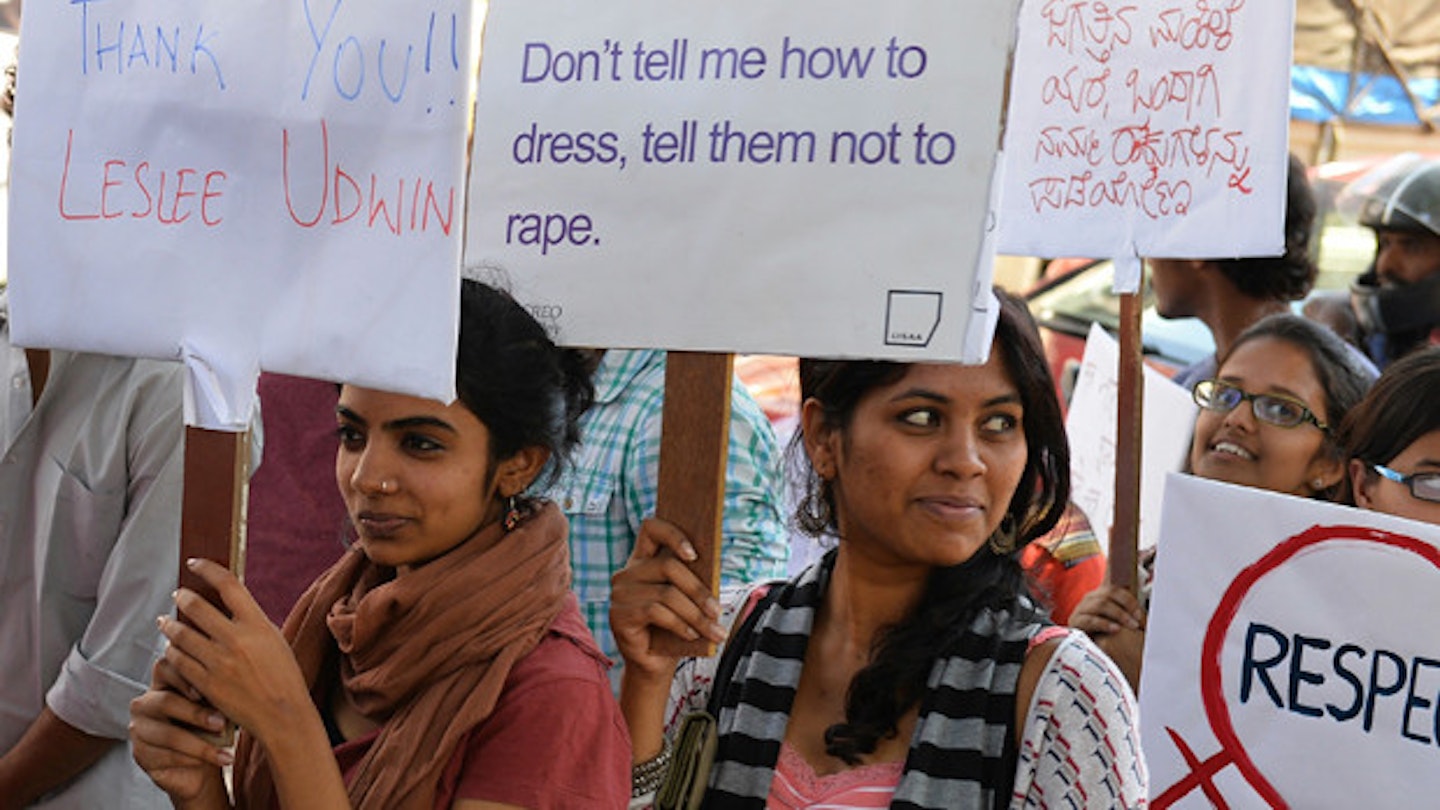Much to the consernation of director Leslee Udwin, India’s Daughter, the documentary which pays tribute to the inspiring short life of Jyoti Singh and documents the brutality of her gang-rape and murder in Delhi in December 2012, has been banned in India.
It’s a move that proved shocking to Leslee and all involved, especially since the officials who banned the film did so without even watching it. All the more shocking, in fact, considering the occurrence of rape in India shows no sign of abating, with the latest figures showing that over the last three years there have been at least 75 cases of rape reported every day. And those are just the ones being reported.
Indeed, on UN International Day Of The Girl – a day dedicated to raising awareness about issues concerning gender inequality around the world – and the day we spoke to Leslee, a four-year-old-girl was in hospital in Delhi fighting for her life after yet another horrific gang rape.
We caught up with Leslee Udwin ahead of the screening of the film hosted by Plan UK to talk what proved most shocking, her new mission to change the world’s education system and more.
Hi Leslee! Judging from your Twitter feed and your previous work you’re very vocal about inequality and injustice. What was it about this story in particular that made you want to tell it?
It was the protests and the response to yet another horrific gang rape. We see them all the time. Even today, on the Day Of The Girl, a four-year-old girl has been lacerated in Delhi – her vagina and anus have been slashed to bits and she’s been gang raped. I mean, it’s relentless. This happens right across the world on a daily basis; every second a woman or a girl is being violated, raped, trafficked, murdered.
It wasn’t the gang rape in this case, it was seeing for the first time in my long life, a country’s people pouring out onto the streets with anger, with passion, demanding change.
What was the most shocking thing you saw or heard during the filming process?
I spoke to this young man who had raped a five-year-old girl. My pressing question to him was not why did you do it, but how did you manage to cross the line between wanting to do this thing and actually doing it?
He looked at me like I was crazy and said exactly these words: ‘She was a beggar girl, her life was of no value.’
That to me was the most shocking and the most insightful. They don’t even have remorse because they don’t really think they’ve done wrong, they’ve just stepped on a cockroach. In fact, they feel indignant – why are they being made an example of when everybody else is doing it, too?
**You’ve previously spoken about how behaviour is led by mindset, but what do you think causes these beliefs in the first place? **
Society teaches men to view women as subordinate and valueless. The degree to which value is prescribed to another human being mirrors the degree of the crime, so Isis will go out and behead people because they are infidels, they are not of their faith, therefore they are completely without value – chop off their heads! In India girls are so devalued and unwelcomed by society.
Is this to do with the fact that it’s always been men making the decisions?
You’ve got it! We have been a patriarchal society since time immemorial. There are 15 countries around the world that actually still have laws which variously prevent women from participating in the economy of that nation. In Saudi Arabia women aren’t allowed to drive, we have 20% representation in parliament across the world. It really is enough now.
**You’ve just started travelling the world and speaking to education ministers in hopes of changing the education system and combatting this. What kinds of changes are you hoping for? **
It’s so obvious that I shudder when I think how on earth have we not done this yet? We are educating the heads of our world’s children, not their hearts. We are teaching them numeracy, literacy, but we are not teaching them how to feel! We are not teaching them how to respect another human, moral values, we are certainly not teaching them empathy, which is the core, key factor in human rights being implemented.
To see the world from another human being’s point of view, to feel what the pain would be for that other human being if you did rape them or you did throw acid into their face or whatever it is… That’s key. We are literally designing and constructing a global curriculum with a group of experts from around the world to teach human rights to children from day one of their entry into school.
**Do you think anything has changed since you made this documentary? **
Nothing has changed because the mindset is still the same. Yeah [people are more vocal about it] but so what?
**So what can we as a society do to help hasten along changes? **
I think individuals can decide to stop being so patient, silent and apathetic. They can cry out for the ban [on the film] to be lifted so that Indian people can get the message. And they can support the education mission! They can lobby and shout, even if it’s just in tweets, to make sure that the education minister and head of state in their country takes this seriously and demands the new curriculum.
Find out more about the documentary and what you can do here.
Like this? You may be interested in:
Indian Sisters Face Rape As A Punishment For Their Brother’s Elopement
This Artist Is Challenging Victim Blame Culture With Her ‘Anti-Rape’ Cloak
‘My Body, My Mind, My Choice’ Indian Women’s Video Goes Viral
Follow Alya on Twitter @moorizZLA
This article originally appeared on The Debrief.
